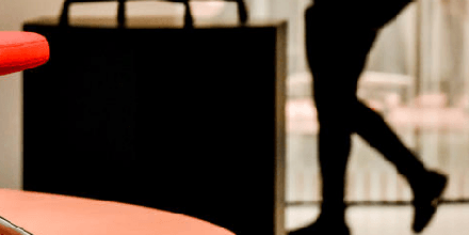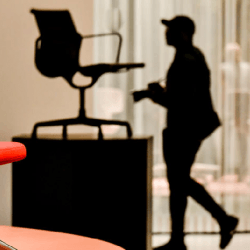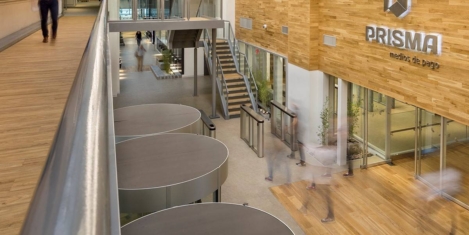November 15, 2018
Majority of office workers discontented with workplace environment
 The vast majority (97 percent) of office workers in UK feel frustrated by their workplace environments, with many feeling the need to escape office life as a result. A new report from Staples has discovered that one-in-five (22 percent) end up browsing LinkedIn job ads for something better when they’re frustrated. As a result, job-hopping is prolific, with workers now predicted to have 11.7 jobs between the ages of 18 and 48. The expectation that the grass must be greener elsewhere is leaving most thinking about switching jobs. However, when they do end up jumping ship, many just experience a short-term fix. According to the study, a third (37 percent) get frustrated in their new office before the end of their first six months. The majority of office workers say they seek fulfilment (89 percent) at work, and for most (77 percent), the quality of their office workspace is a contributing factor in how fulfilled they feel.
The vast majority (97 percent) of office workers in UK feel frustrated by their workplace environments, with many feeling the need to escape office life as a result. A new report from Staples has discovered that one-in-five (22 percent) end up browsing LinkedIn job ads for something better when they’re frustrated. As a result, job-hopping is prolific, with workers now predicted to have 11.7 jobs between the ages of 18 and 48. The expectation that the grass must be greener elsewhere is leaving most thinking about switching jobs. However, when they do end up jumping ship, many just experience a short-term fix. According to the study, a third (37 percent) get frustrated in their new office before the end of their first six months. The majority of office workers say they seek fulfilment (89 percent) at work, and for most (77 percent), the quality of their office workspace is a contributing factor in how fulfilled they feel.







 New research suggests as the supposed ‘technologically savvy’ millennials enter the workforce they are more likely than older workers to break the most basic of security rule, reusing passwords across different accounts. This is according to the results of the 10th Annual Market Pulse Survey from SailPoint Technologies Holdings, which finds that despite an increased focus on cybersecurity awareness in the workplace, employees’ poor cybersecurity habits are getting worse, which is compounded by the speed and complexity of the digital transformation.
New research suggests as the supposed ‘technologically savvy’ millennials enter the workforce they are more likely than older workers to break the most basic of security rule, reusing passwords across different accounts. This is according to the results of the 10th Annual Market Pulse Survey from SailPoint Technologies Holdings, which finds that despite an increased focus on cybersecurity awareness in the workplace, employees’ poor cybersecurity habits are getting worse, which is compounded by the speed and complexity of the digital transformation. 














 Under half (47 percent) of British managers ‘completely agree’ that they would recommend their workplace to others, lagging behind other countries, such as Austria (66 percent), Finland (53 percent), Switzerland (53 percent), and France (51 percent). This is according to a Cornerstone OnDemand and IDC survey of over 1,900 European HR, IT and line of business managers,
Under half (47 percent) of British managers ‘completely agree’ that they would recommend their workplace to others, lagging behind other countries, such as Austria (66 percent), Finland (53 percent), Switzerland (53 percent), and France (51 percent). This is according to a Cornerstone OnDemand and IDC survey of over 1,900 European HR, IT and line of business managers, 
 Work/life balance, and the ability to take more annual leave, is the top priority for most European workers and 52 percent explicitly see this as an incentive for choosing certain benefits claims research from SD Worx. Employees in France (63 percent) prioritise this the most across the Europe, next is the UK, whilst workers in Austria (36 percent) and the Netherlands (32 percent) are least likely to opt for additional annual leave. Flexible working also plays a significant role in the benefits employees would choose, with home working allowances being a key factor for 21 percent of respondents and 21 percent wanting a laptop or smartphone included in their benefits package.
Work/life balance, and the ability to take more annual leave, is the top priority for most European workers and 52 percent explicitly see this as an incentive for choosing certain benefits claims research from SD Worx. Employees in France (63 percent) prioritise this the most across the Europe, next is the UK, whilst workers in Austria (36 percent) and the Netherlands (32 percent) are least likely to opt for additional annual leave. Flexible working also plays a significant role in the benefits employees would choose, with home working allowances being a key factor for 21 percent of respondents and 21 percent wanting a laptop or smartphone included in their benefits package. 









November 7, 2018
Will technology prove a threat or a godsend in the new workplace?
by Matt Weston • Comment, Technology, Workplace
More →